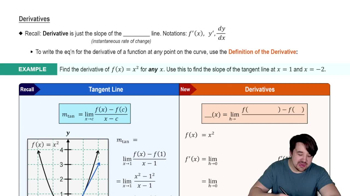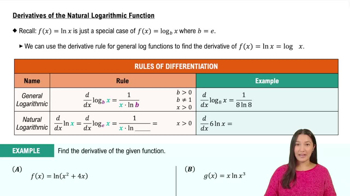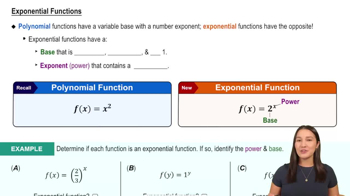Find the derivative of the following functions.
y = In |x²-1|
 Verified step by step guidance
Verified step by step guidance Verified video answer for a similar problem:
Verified video answer for a similar problem:



 4:50m
4:50mMaster Derivatives of General Exponential Functions with a bite sized video explanation from Patrick
Start learning